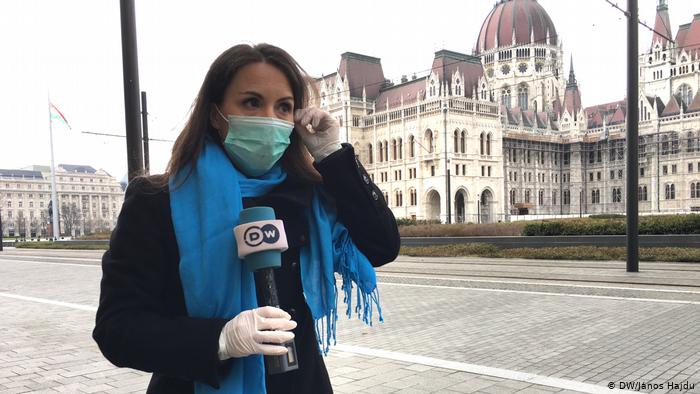A law that holds a prison sentence of up to five years for spreading “false information” is part of new measures against COVID-19. As Fanny Facsar reports, journalists fear it could make it even harder to report news.
These are turbulent times in Hungary, with a single political decision receiving massive international attention. It’s not the first time Hungary has been in the headlines for government decrees that have raised eyebrows nationally and internationally. Prime Minister Viktor Orban has freely described his understanding of democracy as “illiberal,” and refers to his decisions as “unorthodox.”
‘Who defines what ‘distortion’ means?’
The government’s latest move was to prolong the emergency decree for an indefinite time, a response to the COVID-19 pandemic. Part of those emergency powers is paragraph 337, which contains a prison sentence of up to five years for spreading “false information.”
Some journalists in Hungary now fear this may make it even harder to report the news. Most of the Hungarian media is either managed or owned by people loyal to the government. But there are still some critical outlets — online and smaller newspapers — which have raised the alarm about the law.
“This law creates a lot of uncertainty because you do not know how decisions will be made,” said Zoltan Batka, who writes for Nepszava, a small daily newspaper. He usually focuses on topics revolving around corruption. “Even if you spread true information in a distorted way which could curb the protection of Hungary, you face jail time. But who defines what ‘distortion’ means?”






